































Sometimes, a regular credit card just will not do. When you have a lot of spending to do, high-limit credit cards can help you make the expenditures you need to make without having to pay cash upfront. While certain credit cards are upfront about the maximum credit line they allow, others may assess each application on an individual basis. Our editorial team has done the work to find the best credit cards that offer some of the highest limits available today based on factors like credit limit, qualification, credit score, rewards, and more.
These are the best high-limit credit cards for your financial needs.
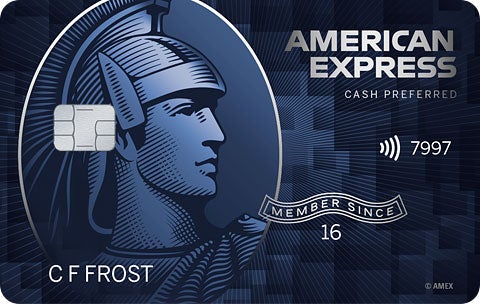 card highlights intro bonusEarn a$250 statement credit after you spend$3,000 in purchases on your new Card within the first 6 months.APR19.24% - 29.99% Variablerecommended creditExcellent/Goodreward rates
card highlights intro bonusEarn a$250 statement credit after you spend$3,000 in purchases on your new Card within the first 6 months.APR19.24% - 29.99% Variablerecommended creditExcellent/Goodreward rates American Express is known for keeping its credit limits secret, but you could qualify for the American Express Blue Cash Preferred card if you have good credit. With an introductory APR, it offers a special introductory plan with Buy Now, Pay Later Plan It Fees. It gives you the flexibility to work out a payment schedule that works.
Amex offers its highest cashback on U.S. supermarkets, giving 6% cashback on your grocery purchases. There is a cap of$6,000 per year before the rate drops to 1% thereafter. You can also receive 6% cashback on streaming subscriptions when you use your card to pay your bill. Extra bonuses include 3% back on transit, gas, and other purchases with$120 in credit for Equinox+ memberships. Additionally, you receive a$250 welcome bonus in statement credits when you spend$3,000 in purchases within the first six months. To start, there is a 0% introductory APR that lasts for 12 months on purchases and balance transfers, then variable APR 18.99% - 29.99%.
Pros
Cons

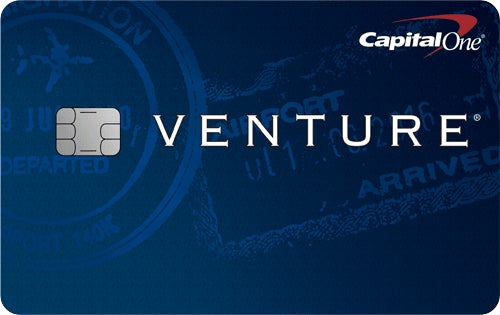 card highlights intro bonusEnjoy a one-time bonus of 75,000 miles once you spend$4,000 on purchases within 3 months from account opening, equal to$750 in travelAPR21.24% - 29.24% (Variable)recommended creditExcellent, Goodreward rates
card highlights intro bonusEnjoy a one-time bonus of 75,000 miles once you spend$4,000 on purchases within 3 months from account opening, equal to$750 in travelAPR21.24% - 29.24% (Variable)recommended creditExcellent, Goodreward rates The Capital One Venture Rewards credit card offers the most rewards when you book through Capital One Travel, giving 5 miles per dollar on hotels and rental cars booking through the platform. You will also receive an unlimited two miles per dollar spent on all other purchases. You can even redeem miles on past travel purchases made apart from Capital One Travel. A credit of$100 applies for Global Entry or TSA PreCheck to simplify your travels, plus there is automatic travel assistance and accident insurance. Benefits are far and wide, including extended warranty on purchases and auto rental collision damage waiver, and luxury airport access twice per year.
New cardholders receive 75,000 bonus miles when you spend$4,000 within the first three months. There is an annual fee, but there are not any transaction fees to rack up international costs.
Pros
Cons

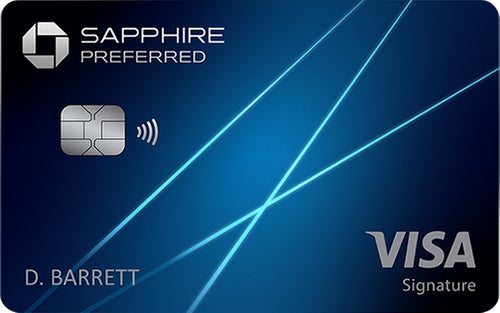 card highlights intro bonusEarn 60,000 bonus points after you spend$4,000 on purchases in the first 3 months from account opening. That's$750 when you redeem through Chase Ultimate Rewards?.APR21.49% - 28.49% Variablerecommended creditExcellent/Goodreward rates
card highlights intro bonusEarn 60,000 bonus points after you spend$4,000 on purchases in the first 3 months from account opening. That's$750 when you redeem through Chase Ultimate Rewards?.APR21.49% - 28.49% Variablerecommended creditExcellent/Goodreward rates With the Chase Sapphire Preferred card, you start off with 60,000 bonus points after spending$4,000 on purchases within the first three months. It is equivalent to$750 when you use Chase Ultimate Rewards to redeem your rewards. There are also 5x the points when you book travel through Chase Ultimate Rewards, with 3x the points on dining, including takeout, delivery, and in-restaurant purchases. Purchases booked beyond Chase Ultimate Rewards receive 2x the points on travel. Chase will also reward you each year on your anniversary with up to$50 in statement credits for hotels booked through Chase Ultimate Rewards.
Depending on creditworthiness, there is a competitive variable APR of 21.24% - 28.24%. You will have to pay an annual fee, which is less than$100, making it better than American Express cards.
Pros
Cons

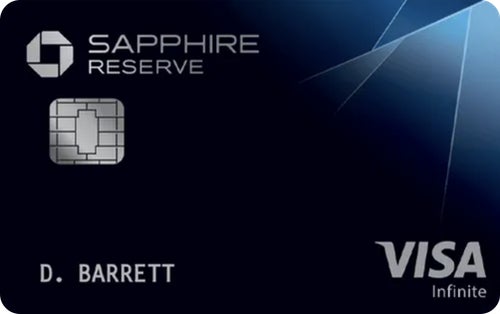 card highlights intro bonusEarn 60,000 bonus points after you spend$4,000 on purchases in the first 3 months from account opening. That's$900 toward travel when you redeem through Chase Ultimate Rewards?APR22.49% - 29.49% Variablerecommended creditExcellent Creditreward rates
card highlights intro bonusEarn 60,000 bonus points after you spend$4,000 on purchases in the first 3 months from account opening. That's$900 toward travel when you redeem through Chase Ultimate Rewards?APR22.49% - 29.49% Variablerecommended creditExcellent Creditreward rates Start off strong by earning 60,000 bonus points when you use your Chase Sapphire Reserve to spend$4,000 within the first three months. It is worth$900 toward future travel when you book through Chase Ultimate Rewards. Chase also offers a$300 Annual Travel Credit that you can use to receive up to$300 annually in statement credits as partial reimbursement of the year's total travel purchases. There are also 10x the points on Chase Dining, 3x the points on other dining, ridesharing incentives, and up to a$100 fee credit for Global Entry, TSA PreCheck, and NEXUS.
The Sapphire Reserve includes 10x the points on hotels and car rentals after your first$300 spent on travel, and you book through Chase Ultimate Rewards with 5x the points on flights and 3x the points on other travel annually after your first$300 in travel purchases and when you book through Chase Ultimate Rewards. If you stick with Ultimate Rewards for points redemption, your points are worth 50% more. Just beware - the annual fee is high at well over$500.
Pros
Cons

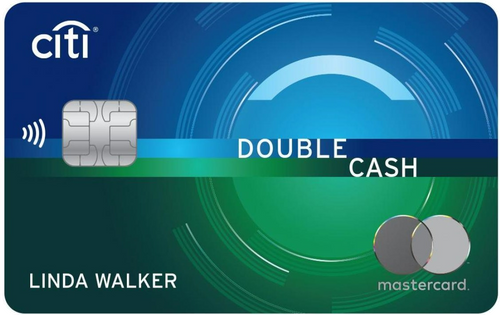 card highlights intro bonusN/AAPR19.24% - 29.24% (Variable)recommended creditExcellent, Good, Fairreward rates
card highlights intro bonusN/AAPR19.24% - 29.24% (Variable)recommended creditExcellent, Good, Fairreward rates The Citi Double Cash card breaks up its rewards, so you receive 1% at purchase and 1% when you pay your balance, even if you are not paying in full. That means that you get an extra bonus after time, even if you have not purchased anything recently. However, Citi will be making some slight changes to its points program. Come March 28, 2022, Citi will be converting its points program to ThankYou Points, which will replace its Cash Rewards that use dollars instead of points. Now cardholders will receive 1 point per dollar during purchase and 1 point per dollar after bill payment.
There are no category restrictions, and Citi does not cap your earnings, so you can earn as much as you want. There is no annual fee, saving you$500 and more when compared to American Express,
Pros
Cons

There are many credit cards out there, but not all of them may offer the right terms and limits that you need.
Be sure to review a credit card company's terms and conditions for fees and rates, as well as rewards information.
The Chase Sapphire Preferred card is the best high-limit credit card. In addition to solid reward rates and an appealing intro bonus, there are many reasons why we chose this card as our top pick. We did the research so you can reap the benefits.
Finding the best high-limit credit card can be difficult when there are so many options to choose from. Our expert ZDNet recommendations can help you find the best one for you.
Choose this card... | If you... |
American Express Blue Cash Preferred card | Want rewards on where it matters most |
Capital One Venture Rewards credit card | Are a globetrotter |
Chase Sapphire Preferred card | Wanted the highest limit |
Chase Sapphire Reserve | Want extra rewards |
Citi Double Cash card: 18 month BT offer | Want bigger rewards |
It is always important to exercise caution with your spending and make sure that it coincides with your income. Having too high of a credit limit could easily lead to financial devastation if you spend more than you can pay. Talking to a professional financial advisor can help you determine how much credit is too much for your household.
High-limit credit cards are largely based on your credit score, so be sure to check and regularly monitor your credit score to ensure that there are no errors. Creditors will also look at how much debt you have, so try to pay down any outstanding bills and keep with timely payments.
The Chase Sapphire Reserve card has the highest limit that we've found, offering a credit limit of$10,000 or higher. Its premium benefits provide high limits and excellent travel perks. However, these great benefits come at the price of a$550 annual fee.
Even the best credit cards with the highest limits may offer some flexibility as far as credit lines. It all depends on the flexibility of the issuer and factors like your income, payment history, and credit score.
Transactions that exceed your credit limit are often declined by your card issuer. However, If you do manage to go over, various consequences may occur dependent on which company you use. For example, it's possible that your credit card company adds the over-limit amount to your minimum payment. The bottom line is that you should avoid going over your limit or you risk having your account closed and your credit score drop.
If your credit score does drop, you're okay! You still have options. We recommend that you look into a credit card for bad credit. Using one will help you rebuild your credit as you borrow and repay.
There are some alternatives you may want to consider in addition to our picks for the best credit cards with the highest limits. These picks may also be worthy of your consideration.
For other expert recommendations, check out our credit card reviews for the most exclusive credit cards, the best crypto credit cards, and the best credit cards for good credit.
Opinions expressed here are author's alone, not those of any bank, credit card issuer, hotel, airline, or other entity. This content has not been reviewed, approved or otherwise endorsed by any of the entities included within the post.?
 Tags chauds:
Notre processus
finances
Cartes de crédit
Tags chauds:
Notre processus
finances
Cartes de crédit